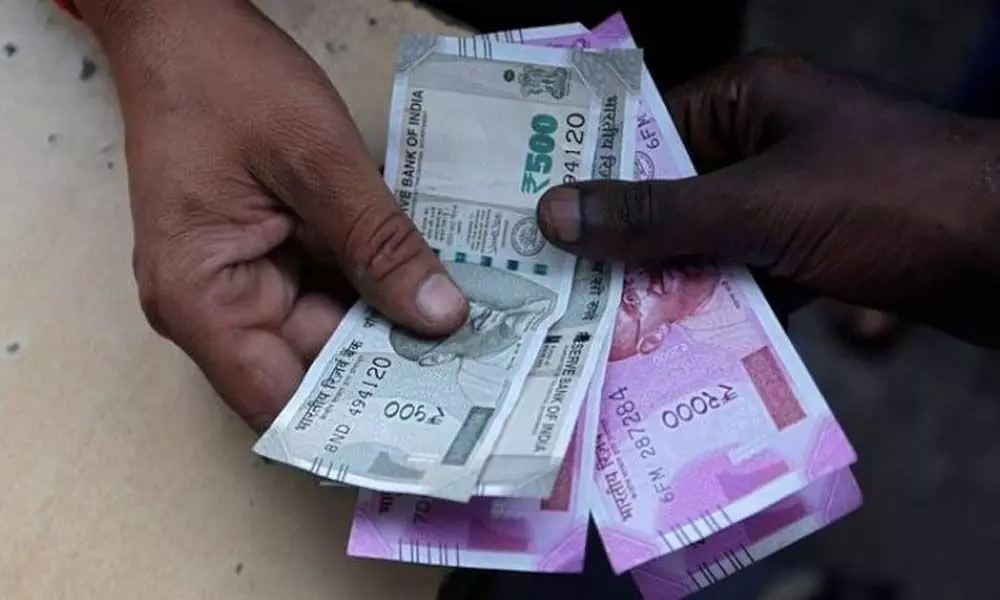New Covid 2.0 package not enough, pushing short-term demand key for economic revival
The new economic package of measures is not likely to boost consumer sentiment or confidence at this stage as it largely represents an expansion of existing credit guarantee schemes
image for illustrative purpose

The latest round of stimulus measures announced by Finance Minister Nirmala Sitharaman are welcome, but fall short of the needs of a Covid-battered economy right now. Incremental steps are not enough at a time when revival from the pandemic-induced slump needs a more large-hearted approach. The government continues to rely on indirect methods like expanding credit and further extending loan guarantees rather than direct support to vulnerable sections of society. These initiatives will provide considerable support to the micro, small and medium business segments but will take time to have an impact. Similarly extension of credit to the critical healthcare sector is timely and badly needed but will yield results in the medium rather than short term by way of building up infrastructure in this vastly neglected sector.
Increasing credit flows will not give the much needed push to demand in the economy. The bigger crisis immediately is on the demand side and the government would have been better advised to opt for schemes providing direct financial benefits to those at the bottom of the pyramid. The steps, for instance, aimed at the tourism industry such as credit guarantee loans for travel and tourism stakeholders along with 5 lakh free tourist visas may bring only marginal relief to a sector that is facing a severe demand slump. Even in the area of healthcare, a more significant impact would have been possible by extending the Ayushman Bharat health insurance scheme so that the financial losses suffered by Covid-hit families are fully covered.
Currently, insurance providers are not covering the full costs of Covid care either for hospitalization or home care. The latter has been especially problematic as many patients were denied hospital beds and forced to get treated at home. But home care expenses are either not covered at all or only marginally by existing insurance policies. Such assistance for those in financial distress due to Covid would have gone a long way in easing the hardships faced by the general public.
The credit guarantee scheme itself is undeniably useful as it provides emergency loans for small businesses to be given with guarantees by the government, thereby covering the default risks for lenders. It has now been extended to micro-finance institutions which had been seeking such relief to provide easier loans to small borrowers. Much will depend, however, on the extent of utilization of these loans by micro and small enterprises and, once again, this can only be gauged in the coming months.
One of the most vital parts of the latest package has been the extension of the free food grains scheme for a longer period. This is, in fact, the only direct support that has been given to the weakest sections during the pandemic as most other measures have been through banking channels. Interestingly India has been unique in that respect as many countries have adopted direct financial aid measures to the people. Large economies have been following policies involving direct money transfers to the public in a bid to provide a financial cushion to those out of work and also to revive demand.
In the case of India, it is clear the Finance Ministry is keen to avoid widening the fiscal deficit by expanding expenditure through such direct benefit schemes. But it needs to recognize that the Covid pandemic is a once in a lifetime crisis and widening of the deficit can be condoned in such extraordinary times. For the current fiscal – 2021-22, the deficit target has been set at 6.8 per cent. But even if this target is breached it would be worthwhile in case the expenditure is used to give a demand push to the economy. A resurgence in trade and industry will only be possible by raising consumption and this is bound to be given a boost through direct benefit transfers to vulnerable segments. The parallel route to economic revival is mass scale vaccination, which will encourage people to go out without any fear and carry out normal activities. For the huge hospitality sector as well as the aviation industry, it is expanding the ambit of vaccinations that will bring back the tourists and ensure there is a return to normalcy.
The size of the latest stimulus measures is slated to be Rs 6.3 lakh crore. But this includes the quantum of the credit lines being offered and actual utilization will depend on the amount disbursed as loans. The effective impact on the exchequer is thus estimated at only about Rs 6,0000 crores.
The new package of measures is not likely to boost consumer sentiment or confidence at this stage as it largely represents an expansion of existing credit guarantee schemes. The focus on critical sectors like healthcare and tourism is worthwhile but even here the outcome is not likely to be in the short run which is when the distress is at its height. The government needs to look yet again at the possibilities of more immediate policy measures which could include tax cuts on fuel in order to relief to consumers battling price rise, tax holidays for the badly hit tourism and hospitality industry as well as direct benefits transfers to vulnerable segments of the population. A more innovative and out of the box approach needs to be taken to relief measures for the economy at this stage. Extraordinary times call for extraordinary measures and these are not visible in the latest stimulus package rolled out by the government.

